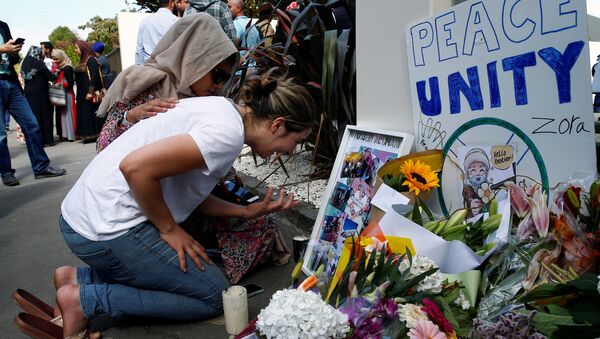Sputnik has discussed if social media should play a bigger role in fighting and picking up hate speech on their platforms with Laura Bliss, an expert on social media law.
Sputnik: Why do you think Twitter failed to respond promptly to the spreading of the extremist video, is this a technical problem or a management oversight problem in your opinion?
So that's where we go back on moderation, but social media companies have millions, sometimes billions of users but they're moderators are only in the thousands. So Facebook, we know, for example, they've got 2.27 billion monthly users. At the end of last year they were anticipating to have only 20,000 moderators, how can you keep up with extremist behaviour or any type of behaviour online if you just don't have the technology and the people to help you with it.
READ MORE: Christchurch Attacker May Have Had Support — New Zealand Police
Sputnik: The issue of Twitter ignoring the accounts of those who spread extremist or hate speech ideology has been around for a number of years. Why in your opinion has nothing effectively changed since the social network was first accused of negligence when it comes to these issues?
Laura Bliss: The main issue at the moment is the lack of legal involvement. So we've all got a right to free speech and free speech is important to maintain a democracy. I'm an advocate of free speech, but I think we forget that actually free speech if you have absolute free speech it means that you're limiting other people's free speech. And what we're doing now is it seems to be tilting a little bit, in my opinion, a little bit too much in the direction of free speech, which means that extremist behaviour online is allowed to maintain.
Sputnik: Do you think this is an issue of also poor law enforcement in the United States?
Sputnik: To what extent is Twitter following the media hype when it comes to banning prominent right-wing figures, but it allows extremist ideology to be shared regardless of violent content of videos and messages…
Laura Bliss: Yes, I think it's hard in some cases to distinguish between what is extremist content and political ideology. And I think that's where we're starting to fall short. It's about research, trying to establish different ways to try and overcome this issue that we're having. I think the media does have some hype in it, but if we get behind certain content then social media are more likely to remove it.
READ MORE: New Zealand Company Under Fire Over 'Symbolic' Link to Mosque Shooter — Report
We've seen that before with hate speech, for example, when that's illustrated in the media it's more likely that a social media company will remove it. But one of the issues is always going to be language. The language changes over time and it's hard to keep pace with what language can be associated with different ideologies. Again we've got AI technology, but it's been estimated that it will be another 5 to 10 years before AI technology would be able to keep pace with the language that's ongoing online.
Sputnik: To what extent should the social networks be held responsible for spreading extremist materials and how can this be stopped?
Laura Bliss: They should without a doubt start to be held responsible for the content that goes on their sites. So for the moment they're seen as simply hosts rather than publishers which means that they have an air of protection. But they need to be doing more. I think we've seen over the recent years how much dominance these companies have within society.
The other way forward may be going down the civil route where we start imposing a duty of care where there is a clear case of negligence and, therefore, being able to hold those social media companies to account. So behaviour that is still ongoing on their sites, they are the owners of that, they make a lot of money yearly and they need to be taking more responsibility for what actually goes on, rather than coming out with this argument that we're merely hosts, not publishers.
The views and opinions expressed by the speaker do not necessarily reflect those of Sputnik.





